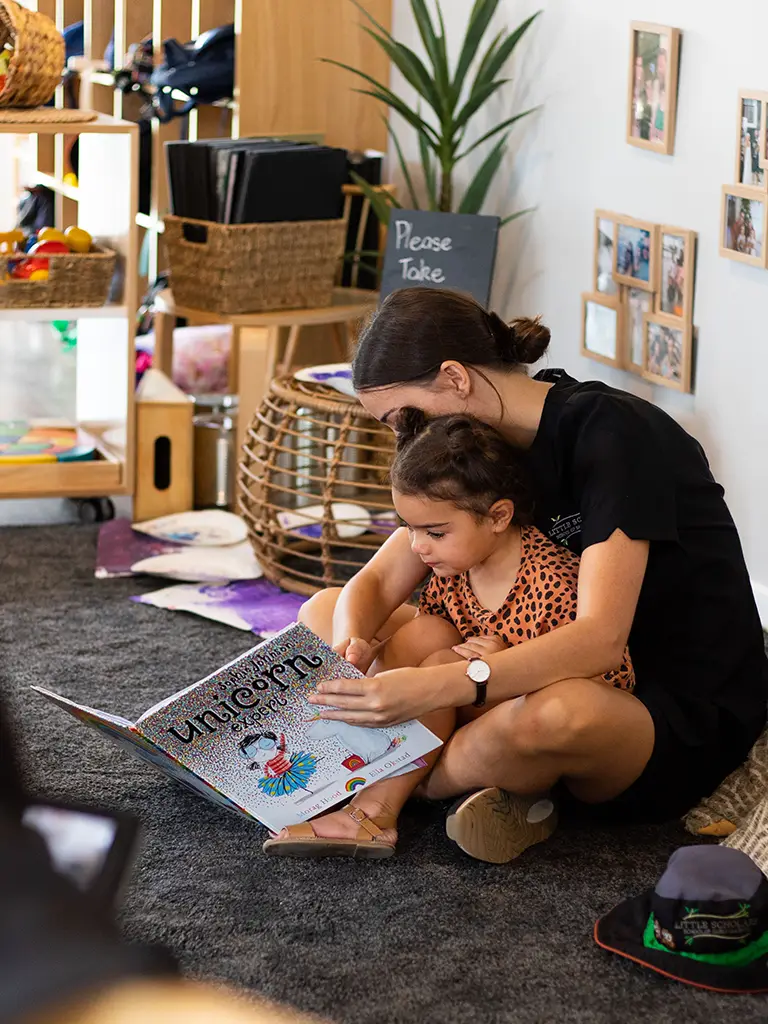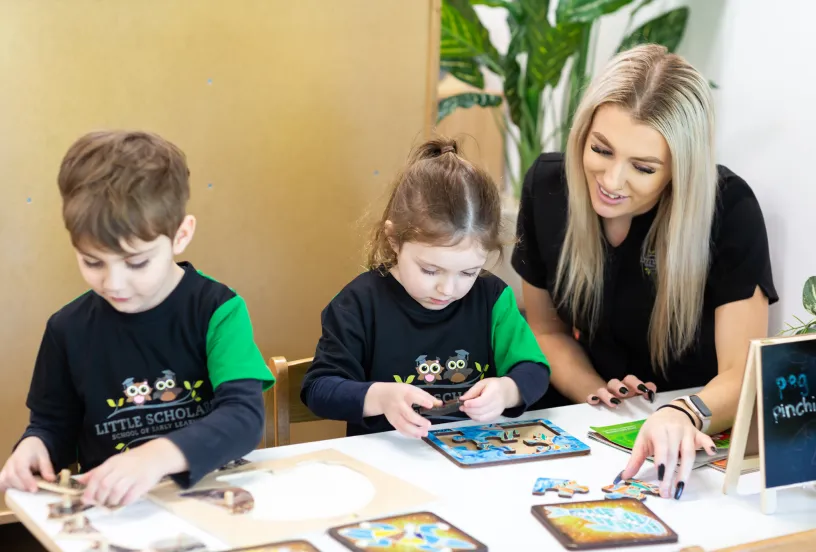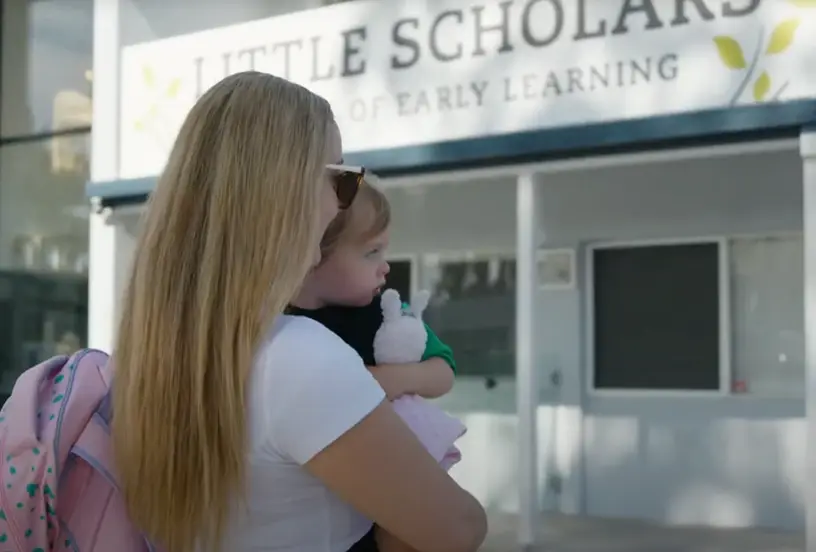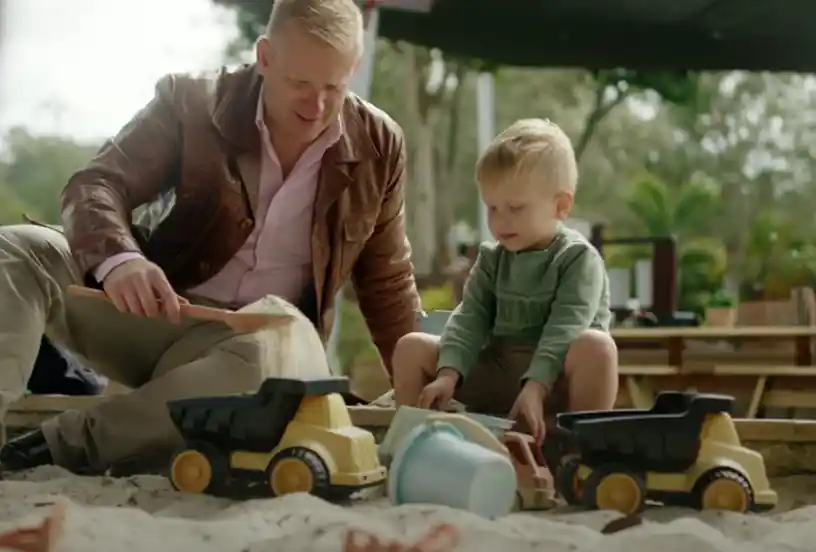Abecedarian Approach

At Little Scholars, we are proud to incorporate the innovative 3a Abecedarian Approach Australia into our reading programs. This approach is more than just reading; it engages children in active, conversational reading, fostering early literacy and encouraging language development in a dynamic and enjoyable way.
The 3a Approach is unique in its emphasis on back-and-forth conversation between the adult and the child. This interactive method is designed to engage little minds at three progressive levels:
- Seeing - encouraging children to observe and recognise
- Showing - guiding them to point and identify
- Saying - inspiring them to articulate and express.
Each level is crafted to enhance understanding and connection with the reading material. For instance, instead of just following the words in a book, we make it a lively conversation.
We ask questions like, “Can you see an owl?”, “Can you say ‘owl’?” or “Can you show me an owl?”
This approach not only enhances vocabulary but also develops critical thinking and comprehension skills.
Family involvement
A cornerstone of the Abecedarian approach is its focus on family involvement. We believe that families play an integral role as a child’s first educator. Our program is designed to support and empower families, helping them grow in confidence as they guide their children’s early learning journey.
Decades of research
The 3a Abecedarian Approach Australia is grounded in the principles of a pioneering American study that spans over 30 years. This landmark research has played a crucial role in shaping our understanding of early childhood education and development.
The original Abecedarian Study began in the 1970s and was one of the first scientifically controlled studies to provide evidence of the long-term benefits of early childhood education. The study focused on children from low-income families and demonstrated that intensive early intervention, starting in infancy and continuing through preschool, had significant, lasting impacts on cognitive and academic development. Key findings included improved IQ scores, enhanced reading and math skills, and higher levels of educational attainment.
This research also highlighted the importance of language-rich interactions between educators and children. The study’s approach emphasised conversational reading, interactive teaching, and the development of critical thinking skills from a very young age.
At Little Scholars, we have embraced the insights from this extensive research to implement the 3a Abecedarian Approach. By integrating these time-tested strategies into our curriculum, we provide our little scholars with a strong foundation for lifelong learning. Our approach not only supports cognitive and academic skills but also nurtures social and emotional development, ensuring a well-rounded educational experience.
Take-home resources for continued learning
To extend this reading experience beyond our campuses, we offer a range of take-home Abecedarian reading resources. These materials are available for families to borrow, ensuring the continuation of interactive learning at home. For more information or to borrow these resources, please feel free to speak with your campus manager or educator.
At Little Scholars, we are committed to providing a rich and engaging learning environment. The 3a Abecedarian Approach is just one of the many ways we ensure our little scholars are on the path to becoming confident, curious, and capable learners.








